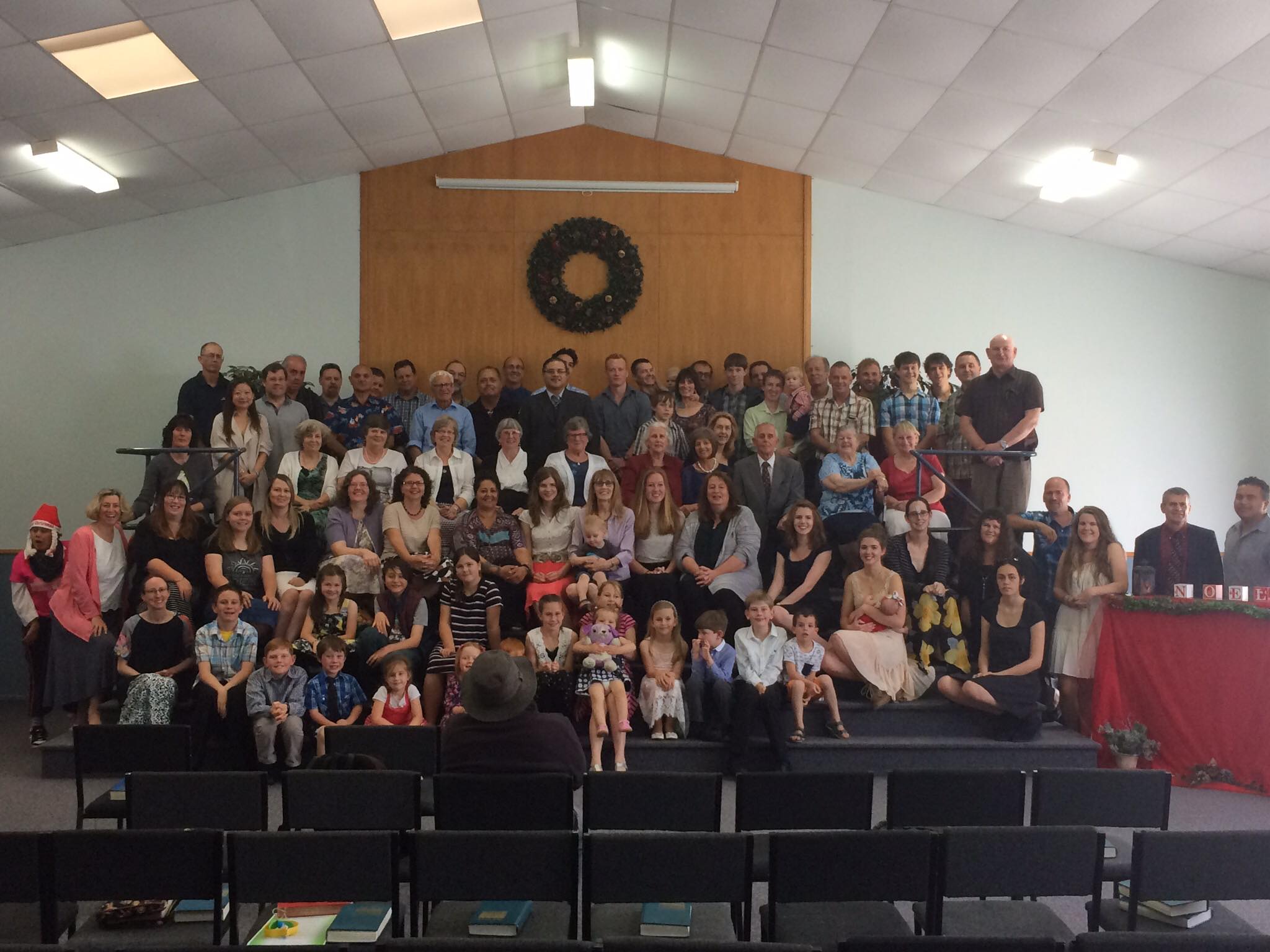Why Church Membership Is Important

What Is Church Membership?
Church membership is when a group of Christians gathers together and forms a local church, bonded together by a common set of beliefs and goals. In the Bible, every local church was autonomous (i.e. self-governing, not under the control of an earthly organization or headquarters). Each believer “joins” the church, becoming a vital part of the local body, serving and helping make church decisions. Each church typically writes a document, sometimes referred to as a “constitution”, defining the church’s core beliefs from the Bible, how the church accepts and expels members, how the church chooses pastors and deacons, how the church makes decisions, how the church handles property and finances, etc. The Lord left many of the practical details of running a local church out of the Bible so that each church in each culture could serve the Lord how they believe the Bible leads them to.
Why Is Church Membership Important?
1) Church Membership Is Biblically Mandated
There are over 40 specific local churches mentioned in the Bible that existed during Bible times (i.e. Jerusalem, Antioch, Derbe, Lystra, Iconium, Berea, Athens, Ephesus, etc.). Sometimes those churches met in a building, and sometimes they met in homes (i.e. Romans 16:5, “Likewise greet the church that is in their house.”). The meeting place isn’t the church, the people are the church! Acts 16:5, “And so were the churches established in the faith, and increased in number daily.”
God gave many Biblical guidelines for the local church:
- 1Corinthians 6:4, If then ye have judgments of things pertaining to this life, set them to judge who are least esteemed in the church.
- 1Corinthians 11:18, For first of all, when ye come together in the church,
- 1Corinthians 12:25, That there should be no schism in the body; but that the members should have the same care one for another.
- 1Corinthians 14:26, How is it then, brethren? when ye come together, every one of you hath a psalm, hath a doctrine, hath a tongue, hath a revelation, hath an interpretation. Let all things be done unto edifying.
- 1Corinthains 14:33, For God is not the author of confusion, but of peace, as in all churches of the saints.
- 1Corinthians 14:40, Let all things be done decently and in order.
- 1Corinthians 16:2, Upon the first day of the week let every one of you lay by him in store, as God hath prospered him, that there be no gatherings when I come.
- Philippians 1:1, Paul and Timotheus, the servants of Jesus Christ, to all the saints in Christ Jesus which are at Philippi, with the bishops and deacons:
- Philippians 2:2, Fulfil ye my joy, that ye be likeminded, having the same love, being of one accord, of one mind.
- 1Timothy 3:15, But if I tarry long, that thou mayest know how thou oughtest to behave thyself in the house of God, which is the church of the living God, the pillar and ground of the truth.
- 1Timothy 5:16, If any man or woman that believeth have widows, let them relieve them, and let not the church be charged; that it may relieve them that are widows indeed.
- Hebrews 10:25, Not forsaking the assembling of ourselves together, as the manner of some is; but exhorting one another: and so much the more, as ye see the day approaching.
- Hebrews 13:17, Obey them that have the rule over you, and submit yourselves: for they watch for your souls, as they that must give account, that they may do it with joy, and not with grief: for that is unprofitable for you.
- James 5:14, Is any sick among you? let him call for the elders of the church; and let them pray over him, anointing him with oil in the name of the Lord:
- 1Peter 5:2, Feed the flock of God which is among you, taking the oversight thereof, not by constraint, but willingly; not for filthy lucre, but of a ready mind;
As is obvious in the above verses, God wanted local churches established and following His Word. These churches must have “members” because they are organized, carrying out God’s mandates for their churches (i.e. assemble, care for one another, in unity), and they have “officers”, i.e. bishops (pastors) and deacons.
God also wants every Christian to be part of a “local” church (i.e. a member). In Hebrews 13:7 and 13:17 Christians are commanded to remember and obey them that “have the rule over you.” God is clearly talking about pastors because the Word uses the phrases “who have spoken unto you the word of God”, and “they watch for your souls, as they that must give account.” If a Christian is not a member of a local church, which pastor is he to remember and obey? If there is no church membership, which group of people (i.e. flock) is a pastor accountable for? Peter (and Paul in Acts 20:28) commanded pastors to feed and take the “oversight” of the flock in 1Peter 5:2. Which flock is he to oversee if there are no members? In Titus 1:5, Paul assigned Titus to “ordain elders in every city.” These elders (pastors) were given authority (ordained) over a flock.
In 1Corinthians 5 Paul is rebuking the Christians at the church in Corinth for not dealing with a man in the church that was publicly hurting the testimony of the church. Paul tells the church that they need to remove him from their body. Paul uses the terms “within” and “without” in 1Corinthians 5:12, referring to those that are part of the church and those that are not. If a Christian is not a member of a local church, he is not “within” that church’s authority and cannot be put “without”. God wanted every Christian to be accountable to a local church. This concept is also explained by Jesus in Matthew 18:15-17 where a conflict between two people cannot be resolved and in extreme cases is brought before “the church”. Again, if those people are not members of that church, the church has no authority over them to help resolve the conflict.
2) Church Membership is Good for Each Christian
As explained above, every Christian should want to make himself accountable for his testimony to a local church. Beyond that, being a “member” of a local church gives every Christian a place where he can obey the Lord by serving the Lord with the gifts God has given him (as explained in Romans 12:4-8 and 1Corinthians 12:4-31). Each “member” is commanded to “care one for another” in 1Corinthians 12:25 – being a member makes one part of a “family” that cares for each other. Becoming a member of a local church is a commitment to be part of something Biblical and beautiful! Many Christians want to treat churches as buffet restaurants, picking and choosing what they want from each one but not committed to any single one.
3) Church Membership is Good for the Church
Lastly, membership offers protection for a local church. If someone randomly arrives and wants to speak out or serve in some way, what authority does the church have to say no to that person if the church isn’t organized into an organism, or if there isn’t membership? The Bible says we are to “Lay hands suddenly on no man” in 1Timothy 5:22, meaning we must be careful to assure ourselves that one is doctrinally sound and living a life that would not hurt the testimony of the church before he is allowed to serve or speak as part of the church.
Also, as the church obeys Jesus Christ by “Teaching them to observe all things whatsoever I have commanded you”, God will call members of that church to leave and start new churches!! The Bible says of the church in Antioch regarding Barnabas and Paul, “And when they had fasted and prayed, and laid their hands on them, they sent them away.”
Conclusion
Every born-again Christian should follow God’s leading and become a member of a “local” church, one that teaches and preaches God’s Word. Joining and serving in local churches is God’s idea. There is no perfect local church, because each one is made up of sinners, but God wants us to do our part in helping and building His church.
Note: According to RBBC’s Constitution, one must be born-again, baptized by immersion, and agree with the RBBC Constitution to request membership at RBBC.

